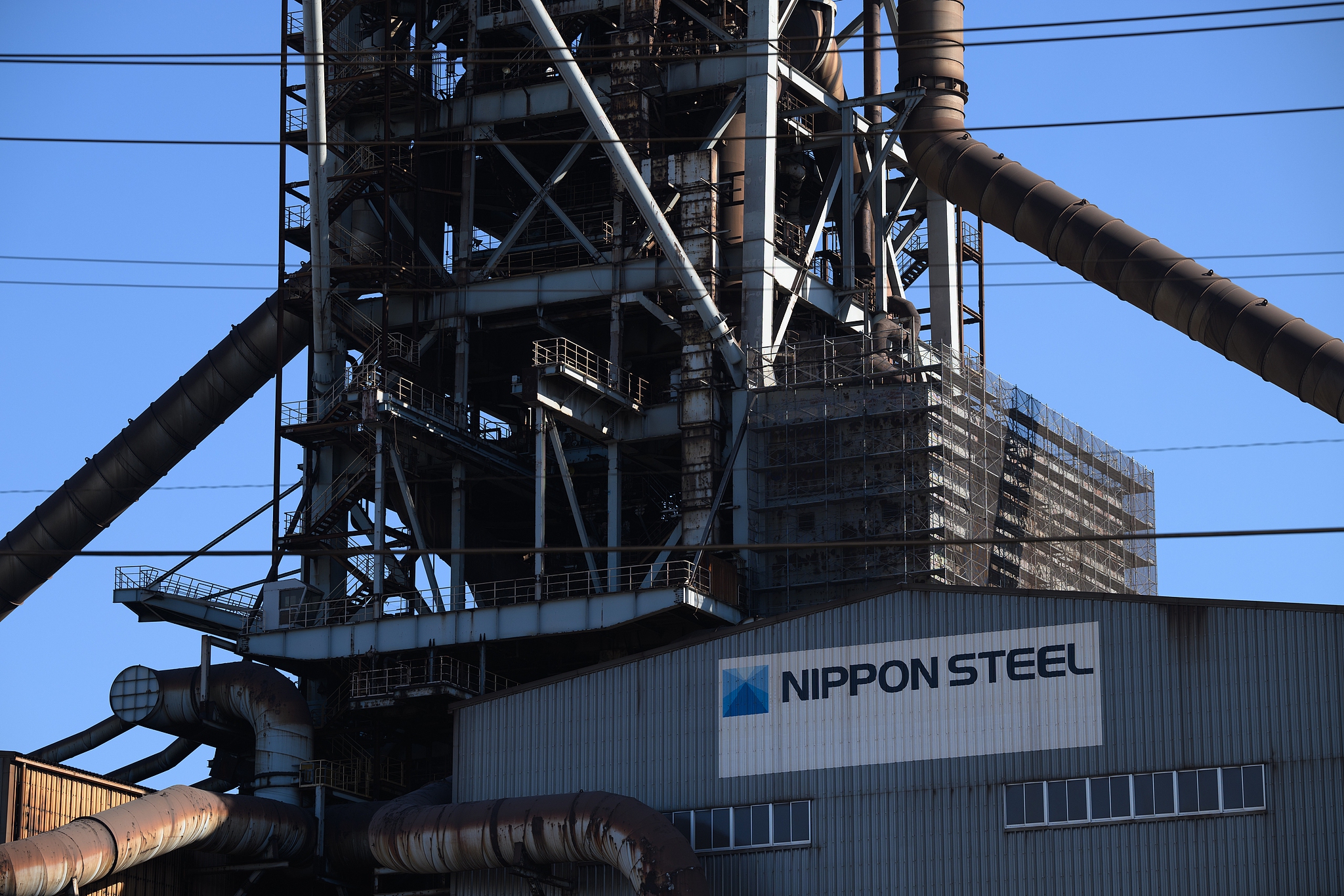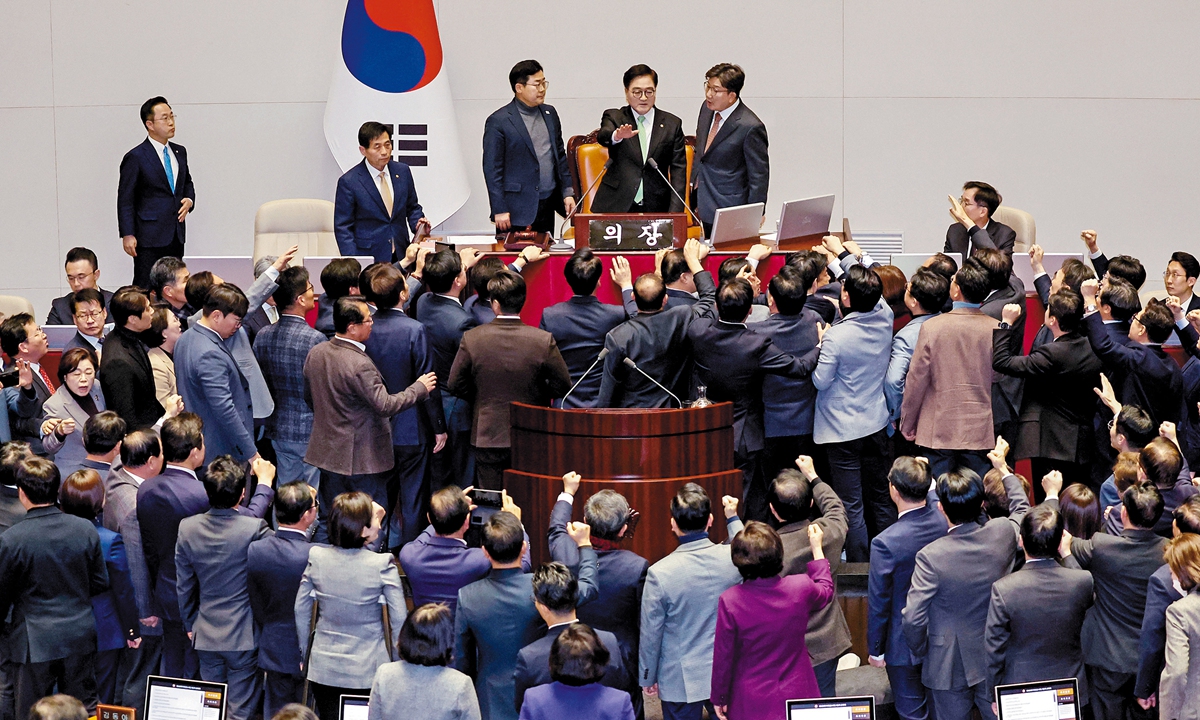Biden’s blocking of US Steel takeover signals rising economic nationalism, could create ‘trust crisis’ between US, Japan

Photo: CFP
Japan's Nippon Steel Corp. is set to file a lawsuit in response to US President Joe Biden's decision to block its $14.1 billion takeover of United States Steel Corp., Kyodo News reported, citing sources. The US president cited concerns the deal could threaten US national security.
Biden on Friday said the deal posed a risk to national security while urging the Japanese and US steelmakers to "fully and permanently" abandon their plan, which has been backed by US Steel shareholders. The leadership of the powerful United Steelworkers union strongly objected to the acquisition, Japan's Kyodo News reported.
Nippon Steel, the world's fourth-largest steelmaker, and the smaller US Steel immediately released a joint statement saying the US authorities' review of their deal was "manipulated to advance President Biden's political agenda" and that they will "take all appropriate action to protect our legal rights."
The two firms are expected to claim in court that Biden did not present sufficient evidence to prove the acquisition poses a threat to US national security, and that his decision violates due process under the US Constitution and the law governing the Committee on Foreign Investment in the US, Kyodo News cited sources as saying.
"The President's statement and Order do not present any credible evidence of a national security issue, making clear that this was a political decision," the statement said. "Unfortunately, it sends a chilling message to any company based in a US allied country contemplating significant investment in the United States," the two companies said in joint statement Friday.
Nippon Steel could have to pay a breakup fee of $565 million to US Steel if the deal does not go through. It would also be forced to reassess its strategy in the US market where demand is expected to remain stable, according to NHK.
Trust crisis between allies
Experts believe the issue could create a trust crisis between the US and Japan, one of its most important allies in the Asia-Pacific region, eroding their ties and prompting Tokyo to reassess its future economic cooperation with Washington. This situation also underscores the rising tide of protectionism and economic nationalism in the US, which appears to affect even its closest allies.
Japan's industry minister Yoji Muto described Biden's move as "incomprehensible." "It is incomprehensible and regrettable that the Biden administration has made this kind of decision, citing national security concerns," he said in a statement sent to AFP on Saturday.
Biden's decision to block the deal could create a trust crisis between Washington and Tokyo. Japan has placed significant emphasis on this deal, viewing it as a means to enhance cooperation between the two countries. The US' rejection may be interpreted as a sign of mistrust toward Japan, Lü Xiang, a research fellow at the Chinese Academy of Social Sciences, told the Global Times on Sunday.
This decision could also weaken the alliance, as Japan has been one of the US' most important allies in the Asia-Pacific region. Consequently, Japan may reassess the stability of bilateral ties, particularly in the realm of economic cooperation, Lü warned.
Biden's order marks the first time an American president has banned a merger and acquisition deal involving a Japanese firm, according to Japanese media.
A Japanese government source told Euronews that the Biden administration's decision to block the takeover might have an impact on future investments between Japan and the US.
The source referenced the upward trend in investment from Japan to the US, as well as "strong concerns" raised by the business communities of both countries, particularly the Japanese industrial sector," about future investment between Japan and the US."
This incident also sends a signal to other countries that even investments from America's close allies may face political interference in the US, Lü said, noting that it will make investors from other countries wary of the American market.
Rising protectionism
Some US media outlets also raised the concern if the block will have a chilling effect on foreign investment in the country.
"Whatever the reason [for Biden's decision], former officials and experts said the decision signals how sharply the US has turned away from the principles of globalization that were a hallmark of US trade and investment policy until well into the mid-2010s. The US has relied on the vaguely defined idea of national security as part of that shift," Bloomberg reported on Saturday.
"Blocking the deal could be politically popular domestically but could scare away foreign investment in other US companies. It could also starve US Steel of investment it says it needs," CNN said in a report on Friday.
Under the context of the reindustrialization, the US needs to defend its industrial foundation, especially the steel industry, which is key for national defense and infrastructure, meanwhile, the US is attempting to restore economic competitiveness through "revitalizing manufacturing," and allowing a landmark steel company to be acquired by a foreign entity would undermine this effort, Wang Guoqing, research director at the Beijing Lange Steel Information Research Center, told the Global Times on Sunday.
The current sentiment in the US is keeping vigilant toward foreign investment, especially in critical industries. Biden's decision to block the merger aligns with the prevailing economic nationalism in the US, said Lü.
While the Washington Post reported that senior Biden administration officials had reservations about labeling Nippon Steel's takeover proposal a "national security risk," the president ultimately took the decision. Lü noted that his decision-making is more heavily influenced by voter expectations and public political opinion.
The leader of the United Steelworkers union, David McCall, welcomed Biden's decision to block the deal, saying the union has no doubt it is the right move for its members and national security.
The case mirrors the rising economic protectionism in the US, which is primarily focused on protecting key industries from foreign control, even if that foreign investment comes from allies, Lü said.
From the perspective of national economic strategy, Washington may prioritize promoting domestic capital participation in key industries rather than opening up the market, said the expert.



